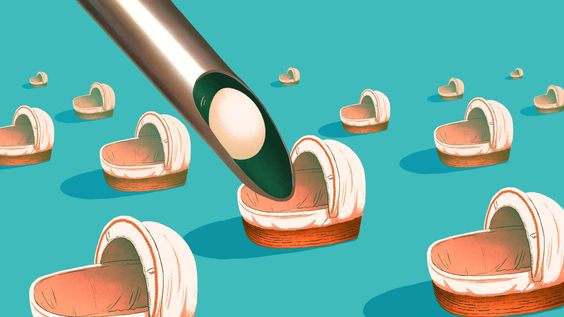Is Egg Donation Safe?
Understanding the Safety of Egg Donation: A Comprehensive Guide
Egg donation has become a pivotal advancement in the realm of reproductive medicine, offering hope and opportunity to countless individuals and couples struggling with infertility. This process involves a generous donor contributing her eggs to help another person or couple achieve their dream of parenthood. While the concept of egg donation is undoubtedly transformative, questions about its safety linger in the minds of many. In this comprehensive guide, we will delve into the intricacies of egg donation to shed light on its safety, ensuring you are well-informed before embarking on this life-changing journey.
The Egg Donation Process
Before we discuss safety, let’s gain a fundamental understanding of the egg donation process. Egg donation is a meticulous, multi-step procedure that involves several key stages:
- Screening: Egg donors undergo rigorous screening, including medical and psychological evaluations, genetic testing, and infectious disease screenings. This comprehensive assessment ensures that only qualified donors participate.
- Stimulation: Donors receive hormone injections to stimulate the ovaries and promote the development of multiple egg follicles. Frequent monitoring through blood tests and ultrasounds is conducted during this phase.
- Egg Retrieval: Once the eggs have matured, a minimally invasive procedure called egg retrieval is performed. It is typically done under sedation or anesthesia to minimize discomfort.
- Fertilization: The retrieved eggs are fertilized with sperm, either from the recipient’s partner or a sperm donor, to create embryos.
- Embryo Transfer: Developed embryos are transferred into the recipient’s uterus, where they have the potential to implant and result in a pregnancy.
Is Egg Donation Safe?
Safety is a paramount concern for both egg donors and recipients. Let’s examine the safety aspects from both perspectives:
For Egg Donors:
- Medical Screening: Egg donors undergo thorough medical evaluations to ensure they are healthy and suitable for the procedure. This reduces the risk of complications.
- Short-term Risks: While the stimulation phase carries some short-term risks such as ovarian hyperstimulation syndrome (OHSS), these are relatively rare and closely monitored by medical professionals.
- Long-term Health: Extensive research has not shown any significant long-term health risks associated with egg donation.
- Psychological Support: Donors receive psychological counseling to address any emotional concerns related to the process.
For Recipients:
- Medical Oversight: Recipients benefit from close medical monitoring throughout the process to ensure a safe and successful pregnancy.
- Quality Control: Egg donor agencies and fertility clinics adhere to strict regulations and quality control standards to minimize potential risks.
- Success Rates: The chances of a successful pregnancy with donor eggs are generally high, providing hope and optimism to those facing infertility.
Legal and Ethical Safeguards
Egg donation is heavily regulated in many countries to protect the interests and safety of all parties involved. Legal contracts are established to clarify rights, responsibilities, and compensation. Ethical guidelines ensure that the process is conducted with utmost integrity.
Conclusion
Egg donation is a safe and well-regulated process that offers hope to individuals and couples struggling with infertility. Rigorous screening, medical oversight, and ethical safeguards are in place to ensure the safety and well-being of both donors and recipients. While no medical procedure is entirely risk-free, the benefits and success stories associated with egg donation underscore its safety and transformative potential. If you are considering egg donation, consult with experienced fertility specialists who can provide personalized guidance and support throughout your journey toward parenthood.

